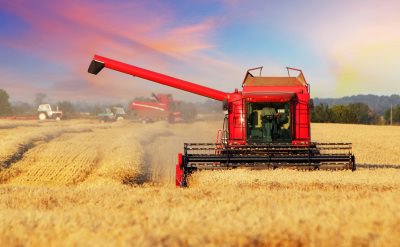Your hard-earned money needs to be invested wisely. There are many investments that one can engage in today. Commodities are one of them.
Let see how you can go about investing in commodities to build income.
Quick Navigation
What are Commodities?
Commodities refer to basic resources that we use every day. They include agricultural products such as corn and sugar, energy-related resources such as natural gas and crude oil, and basic products like aluminum and steel. Precious metals like silver and gold are also commodities.
The major advantage of commodity investments is that they are exceptionally lowly correlated with other asset classes. As such, they fit within the asset allocation Modern Portfolio Theory perfectly.
This theory states that if you want to maximize your returns while minimizing risks, you have to create a portfolio with assets that are minimally correlated with one another.
This ensures that if one asset class fails in a financial crisis, the other class would remain stable and protect your portfolio.
It’s worth noting that investing in a commodity as an asset class is usually not a good idea. This is because commodity total return indexes have always been low.
Commodities can be traded daily on various exchanges, such as the CBOT, CME, and KCBT.
History of Commodities
Commodity trading has a long history. It can be traced back to around 4500 BC when Sumerians used clay tokens sealed in a clay vessel as a medium of exchange for goats. Sumer (the modern day Iraq) is thought to be the world’s oldest civilization.
Other early civilizations used rare seashell, pigs, and other commodities as a form of payment. Over the centuries, traders have been looking for ways to simplify and standardize trade contracts.
This led to the development of silver and gold trading markets in classical civilizations.

The United States embraced modern-day commodity trading in the mid-20th century through the creation of the legendary commodity exchange, the Chicago Board of Trade (CBOT).
In 2007, CME Group Inc. was established following a merger between CBOT and the Chicago Mercantile Exchange (CME).
Over the years, other commodity exchanges and markets have been established across the U.S., including in New York City, Kansas City, and San Francisco.
Types of Commodities
There are different types of commodities that are widely accepted as tradable with a time value around the global markets. The commodities are grouped in the following three major categories:
Agricultural
Agricultural commodities are produced from the soil. They include:
- Coffee
- Sugar
- Corn
- Soybeans
- Wheat
Energy
Energy encompasses the following commodities:
- Crude oil – Used in transportation activities and manufacture of plastics
- Gasoline – Powers cars and light-duty trucks
- Natural gas – Used for generating electricity
Metals
Metals include the following:
- Gold – Used for industrial purposes and jewelry making
- Silver – Used in jewelry making
- Copper – Used for a wide range of industrial purposes
- Aluminum – Also used in numerous industrial applications
That said, let’s explore how you can invest in commodities.
How to Invest in Commodities
There are several ways you can make money with commodities, including:
- Investing directly in the commodity
- Futures trading
- Commodity index funds
- Commodity unit trusts
- Commodity stocks
Let’s take a deeper look at each.
Direct Investment
If you opt for investing directly in the actual commodity, you need to find out where you’ll get it and how you’ll store it. When the time comes to sell the commodity, you need to find a buyer and take care of the delivery logistics.
The major advantage of dealing with a physical commodity is that there are no middlemen involved in your ownership.
You can simply search online for a dealer who can sell you a particular commodity, like investing in gold in its raw form. You can normally sell the commodity to the same dealer when you no longer need it.
A major disadvantage of owning a physical commodity is that transactions costs are normally high. Fortunately, there are other options for commodity investing.

Futures Trading
Commodity futures trading is the most common way to invest in commodities.
It involves buying and selling of commodities on futures exchanges such as the New York Mercantile Exchange (NYMEX) and the Chicago Board of Trade (CBOT).
The best thing about futures trading is that the prices of commodities are transparently discovered through the participation of thousands of traders. There are two major strategies you can employ in commodities future trading:
- You can speculate by taking a position. For example, you can either buy or sell a crude oil futures contract hoping that the price of crude oil would rise or fall respectively so that you can profit from the price change.
- You can hedge to minimize the risk of a natural position in the commodity. If you’re a corn farmer, for example, you can insure against a poor corn harvest by purchasing corn futures contracts. If the supply of corn is significantly low due to bad weather, you’ll make up for the loss with a profit in the corn futures contract.
You should realize that commodity futures trading requires a great deal of input in terms of skills and trading methodology.
You also need to invest much of your time in monitoring a commodities market that’s dominated by financial institutions with professional traders and large commodity trading houses.
Keep in mind that you’ll be trading in commodity futures directly, which makes it a high-risk venture.
Commodity Funds
If you want to diversify your portfolio, but don’t want to trade directly in commodity futures, commodity index funds would be a great alternative investment for you.
Investing in a commodity index fund is a less risky venture compared to commodity futures trading. There are commodity index funds that track a wide range of commodities and those that focus only on one type of commodity such as precious metals or oil.
Commodity Unit Trusts
If you are a unit trust enthusiast, this can be an ideal commodity investment option for you. There are many units trusts investment funds that are designed for retail investors.
Some unit trusts normally invest in a broad range of commodities while others focus on specific sectors of the commodities market, such as precious metals, agriculture, or energy.
For a better diversification, you can consider adding commodity unity trust funds into your long-term investment portfolio.
Commodity Stocks
You can buy commodity stocks that are linked directly to specific commodities like copper, iron, crude oil, and so on. With these, you can profit directly when the stock prices appreciate.
Investment Characteristics
A commodity that is worth investing in should have the following characteristics:
- Tradability – The commodity should be tradable, in that there should be a reliable investment vehicle in which you can trade it
- Deliverability – You should be able to deliver the commodity physically. For example, you can deliver wheat by the bushel and crude oil in barrels
- Liquidity – The commodity should have an active market where buyers and sellers constantly transact with each other. With liquidity, you can easily get in and out of an investment without worrying about finding a buyer or seller for your securities
Alternatives to Investing in Commodities
Pros and Cons of Investing in Commodities
Pros
- Exposure to a variety of growth opportunities – An increasing demand in a commodity can result in its prices rising significantly over time
- Diversification benefits – Commodities normally have a minimal correlation with bonds and stocks. Hence, you can consider investing in various commodities if you want to hedge against your bond and stock investments
- Protection against inflation – Unlike stocks and bonds which are normally negatively affected by inflation, commodities normally benefit from inflation. Namely, a rise in the price of goods leads to the rise in the prices of commodities required to produce those goods
Cons
- High volatility – Commodities are among the most unstable investments. According to experts, commodities can be 200% more volatile than stocks. While volatility can be sometimes beneficial, it can make commodities a risky venture for some investors
- Stringent rules and regulations – Some people believe that the rules and regulations that govern the commodities market can make it difficult for traders to make decisions. In fact, there’s no market with tighter rules and regulations than the commodities market
- You have to invest long-term – If you want to make tangible profits from commodities investing, you’ll need to keep your commodities for at least 10 That means you must keep your investment through all the ups and downs of the market with the hope that you’ll gain profits in the end
- Comprehensive research – Unlike mutual funds where it is easy to understand how you are investing, you must do a great deal of comprehensive research before you can put your money in commodities. There is a wide range of commodities, each with its advantages and disadvantages. You need to understand virtually all of them to pick the best
Final Thoughts on Investing in Commodities
Commodities are one of the best investment options if you play your cards right.
Once you’ve learned and understood about commodities investment, you can add it as part of your long-term investment portfolio for better investment diversification and assets allocation.

Leave a Reply